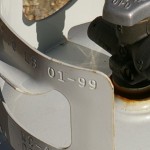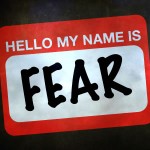 By: RSOPerator
By: RSOPerator
One of the most common questions regarding disaster preparedness is, “How does a family who is new to prepping get started?” Well here is the no-nonsense answer for you.
Step 1: Research the potential natural and man-made threats that loom over the horizon for all of us, as well as those for your specific geographical location. Do you live near, or downwind from, a nuclear power plant? Are tornados or earthquakes common in your area? Are you aware of the Iranian president’s stated goal of “hastening the chaos” between Muslims and the West? These are all valid questions you should be asking yourself as you do the research.
Step 2: Prioritize those threats that concern you from “most likely to occur” to “least likely to occur” based not on fear or a lack of knowledge about current events that surround us, but based on what you have learned in your research. It’s also important to consider that, due to the seemingly perpetual political and economic instability we currently live with, you may find that you need to re-shuffle your priorities from time to time. That is to be expected as both global and local events continue to unfold.
Step 3: Assuming you are not independently wealthy, establish a household budget and set aside either a fixed or varying amount of money and time each week (or month) to be dedicated solely to preparedness. If you feel the amounts set aside are not enough, you’re going to have to find creative ways to cut other non-essential household spending and re-allocate those funds into disaster preparedness, or perhaps cut leisure activities to allow for more time to prepare your family.
Step 4: Acquire what you need in terms of tangible items and supplies, as well as learned skills you feel are necessary to help your family survive a disaster, at the rate your budgets allow.
The Skill of Separating Your Needs From Your Wants:
There are a lot of skills and supplies you will definitely need to ensure your family’s survival, yet there are various items that are unique to a particular situation or scenario, therefore could be considered optional.
Food:
Food storage is essential. Most preppers would agree that a stored supply of a full year’s worth of food and food supplies would be necessary for a family to make the transition to a truly self-reliant lifestyle necessary after the onset of a long-term catastrophic disaster. This means storing a minimum of 2,000 calories per day, per family member, times 365 days, and ensuring the caloric intake is comprised of a balanced diet from the four food groups. This should cover you in just about any conceivable disaster scenario.
There are some harsh realities to face with regard to growing or hunting your food. Foul weather, be it drought, flood or frost, can wipe out a garden in a matter of minutes or hours. Hunting and harvesting wild game require learned skills to be successful on a consistent basis. If your food storage is to be supplemented with garden fruits and vegetables, or meat acquired from hunting, know that when disaster strikes and these additional sources of food fail to yield the amounts you plan for, you are then faced with the harsh reality that you now do not have enough food to sustain your entire family. Are you prepared to decide who eats and who goes hungry? The moral of the story is that if you are going to rely on hunting, fishing, or gardening, know what you’re doing before you put the well-being of your family on the line.
Water:
No matter who you are or where you live, above all else you must have access to a clean water supply. Lack of sufficient potable (drinkable) water leads to dehydration, and that becomes fatal very quickly. Storing potable water requires a tremendous amount of space and is alarmingly heavy, so logistically speaking; storing a year’s supply of water for a family is not the greatest idea as a plan A. You’re going to likely need a consistent, natural supply of water if you are planning to remain at one location throughout the duration as a long-term disaster scenario plays out.
If you occupy property that includes a water well containing potable water, then know how to bring it up with and without electricity. If you live near a stream, river or lake, do you know how to filter the water you retrieve from it so it is safe to drink? Do you have the supplies to do that successfully?
If you reside in a fairly wet location, perhaps you would want to keep tools and supplies on hand that are needed to catch and store rain water for your family’s use. While this would be a very workable plan for a family residing in Seattle, it would surely prove disastrous for a family living in Phoenix, since the latter is located smack-dab in the middle of the desert.
If you are currently on a city water supply system, in the event of a significant disaster, you can expect it to fail, so have a plan B.
The point here is that when you formulate your preparedness plans, you need to consider your family’s specific situation and the potential needs that would arise during a catastrophic disaster. To do anything else would likely amount to a total waste of precious time and resources.
Medicine & First Aid:
Compared to today, in a post-disaster scenario, having emergency medicine and first aid supplies, as well as the related skills to administer them will likely have a greater potential to mean life or death to an injured individual. As was in the past, in a world where there are no longer emergency rooms or local pharmacies to visit, cuts and scrapes will once again become potentially fatal due to infection. Diseases that are now easily treatable via higher levels of medical treatment will become rampant, and will more frequently result in a fatality.
But there are some things you can prepare for. Antibiotics are designed to treat bacterial infection and can be purchased by anyone for the intended use of administering to aquatic animals (fish). Many pet supply stores stock antibiotics for this purpose. The little known fact is that an antibiotic packaged for aquatic animals and sold to the general public is exactly the same medicine that is available from the local pharmacy. The only difference is the packaging. It’s important to note that if you are going to store non-prescription, pet store antibiotics as part of your preparedness plan, then know how and when to use the medicine.
Life after a catastrophic disaster will likely be very labor intensive. With hard work comes the increased occurrence of injury to the body. Medical supplies that would be handy in a disaster situation would be tools and supplies intended to be used to help stop bleeding, to disinfect cuts and scrapes, to wash foreign matter from the eyes, and items used to treat strains and sprains and insect bites. Also anything used to help keep your body (especially your hands) clean will be very useful.
A word of caution regarding first aid in a catastrophic post-disaster situation: In a world suddenly without the wonders of medical technology, successful CPR for those suffering life-threatening injuries will only mean the unlucky victim will have to bear the process of dying not once, but perhaps twice, due to lack of higher levels of available medical care. Compassion in this world will mean something very different than it does today with regard to life-saving first aid measures. Another way to illustrate this point is this: Simply put, I would not want to be resuscitated if all I had to look forward to was a prolonged, agonizing death soon after, because there is no way to get the high level of medical care I need.
Defensive Measures:
There’s an old saying that goes, “Prepare for the worst and hope for the best.” Probably the reason we know that saying today is because the person who coined it likely followed his own advice and thus managed to live so he could share this nugget of wisdom.
In Western culture, anytime there has been a significant disaster, there has been an element of violence and theft present. Today in the U.S., gangs and crime run rampant in our cities and it’s clearly spreading outward into the small towns and rural areas. Violence has become so prevalent in our society today, that it is now permanently ingrained into our modern culture. It’s in our music. It’s in our movies. It’s everywhere.
Don’t be naïve. Defensive measures are essential in disaster preparedness. Anyone who argues otherwise is a fool. In a catastrophic disaster or economic collapse there will be desperate, hungry people, looting will occur, and gangs will form and grow to acquire and hold their new territory. History shows ordinary people who are faced with disease, poverty, hunger and desperation will often times do truly horrific things to those who possess that which is sought after.
If you plan to prepare your family for a disaster, then do the sensible thing and help them prepare to defend themselves and their fellow family members from those who would do them harm. It’s as simple as this; being a prepper without the tools and skills necessary to defend one’s self, is being an easy target. If you want to keep a cache of survival provisions then you are going to have to accept the fact that you may someday have to defend it.
Being prepared is to own one or more firearms and possibly other forms of defensive weapons, and learning how to utilize them properly (safely). Spending big bucks on a big effin’ gun is a waste of useful monetary resources if you do not know how to safely and effectively fire the weapon as well as how to maintain it. If proper handling of a firearm means you feel you need to take a class, then by all means you better do just that. Because if you have that big effin’ gun but no training, and you go one-on-one with someone else who also has that same big effin’ gun, but he is well trained in its use, then you my friend, are as good as dead.
Emergency Planning:
If a natural disaster threatens your property, do you and your family members know what to do and in what order to tackle relevant objectives? In the event disaster strikes and your home is no longer inhabitable, have you established a family meet-up location that all family members know about? If disaster strikes and a neighbor comes to your door asking for food or shelter, has your family discussed how that scenario will be handled? If your neighborhood is being looted, do you stay or do you leave before your home is targeted? These questions illustrate that there are many points to be discussed when it comes to emergency planning and how it pertains to your family.
It’s important to note that this type of planning is very “family specific”, meaning a plan created by, and for, Family A will not likely fit the needs of Family B. Workable planning is created when a family engages in a serious discussion, and through that discussion creates plans based on their specific environment, needs and concerns.
There is another disturbing facet of emergency preparedness at the family level that you should be aware of. Upon the declaration of a State of Emergency, the Federal Emergency Management Agency (FEMA) has the power to seize any (or all) of your possessions, property, etc and leave you with nothing, not even the clothes on your back. During hurricane Katrina, when local thugs discovered FEMA, aided by the local Sheriff’s deputies, had just gone through the neighborhood confiscating the firearms of law abiding citizens (for their own protection), what you suppose happened that very next night? The defenseless citizens were robbed at gunpoint standing in their very own homes.
This scenario is just another really good reason to “Plan for the worst and hope for the best” as I stated earlier. The good news is that the negative impact of this particular scenario could be lessened if your family were to store a secret cache of tools, firearms and emergency supplies in a location that is off of (yet geographically close to) your primary property. Knowledge is power, as they say, and good emergency planning could easily save your life.
Health & Fitness:
You can have the ideal plan in place and all the right tools, food and supplies in storage, but if you are not healthy enough to endure the stresses the body and mind would be challenged by when a long-term, catastrophic disaster strikes, then you are essentially wasting your time reading this. Good health and general fitness greatly increase your chances of being a survivor as opposed to a statistic. Make the decision to eat healthy and get your body into reasonable condition. Physical and mental stresses will serve to condition you to some extent, but simply put, if you’re not up to the conditioning activities that accompany a massive disaster scenario, then you won’t be one of the survivors after all.
As the stability of the world’s economies continues to deteriorate, and threats to the U.S. presence as a superpower multiply around the globe, the days of Americans skating through life in a state of being fat and lazy are likely coming to an end anyway. You might as well turn off the television and get in shape now, soldier.
Tools & Clothing:
The last topic on the list of things to consider is clothing and tools that would be useful in a disaster scenario. There won’t be much use for high fashion accessories and designer jeans when much of your time will be spent doing manual labor. In a disaster you need durable clothes, dependable work gloves, tough work boots, and the necessary tools to get things done.
If you plan to fence in your property in some fashion, you will need to keep the tools on hand to install, mend, and maintain that fence.
If you don’t own the basic tools necessary for the upkeep of a stick-built home, now would be a good time to being to acquire those and also learn some home maintenance skills.
Does your preparedness plan include barring your doors and windows at the onset of a disaster scenario? You’ll likely need a welder, welding supplies, protective gear, electricity and some welding skills to get that done.
While on the subject of electricity, if you have now, or are planning to own a large collection of corded power tools in a post-disaster scenario, what are you going to do if there’s work to be done and the power is out? If you are thinking of going cordless, how are you going to charge these tools if the power is out and you cannot find gasoline for your generator? The answer for many lies in redundancy. Having a selection of basic hand tools to back-up your power tools ensures you can at least get some work done in the event there are no sources of electricity available. Again, the key is to “plan for the worst and hope for the best”.
That covers the basics of how a family that is new to disaster preparedness begins to address the many questions associated with the topic.
In any disaster, you can break those affected into two groups of people; the victims and the survivors. Which will you be?







